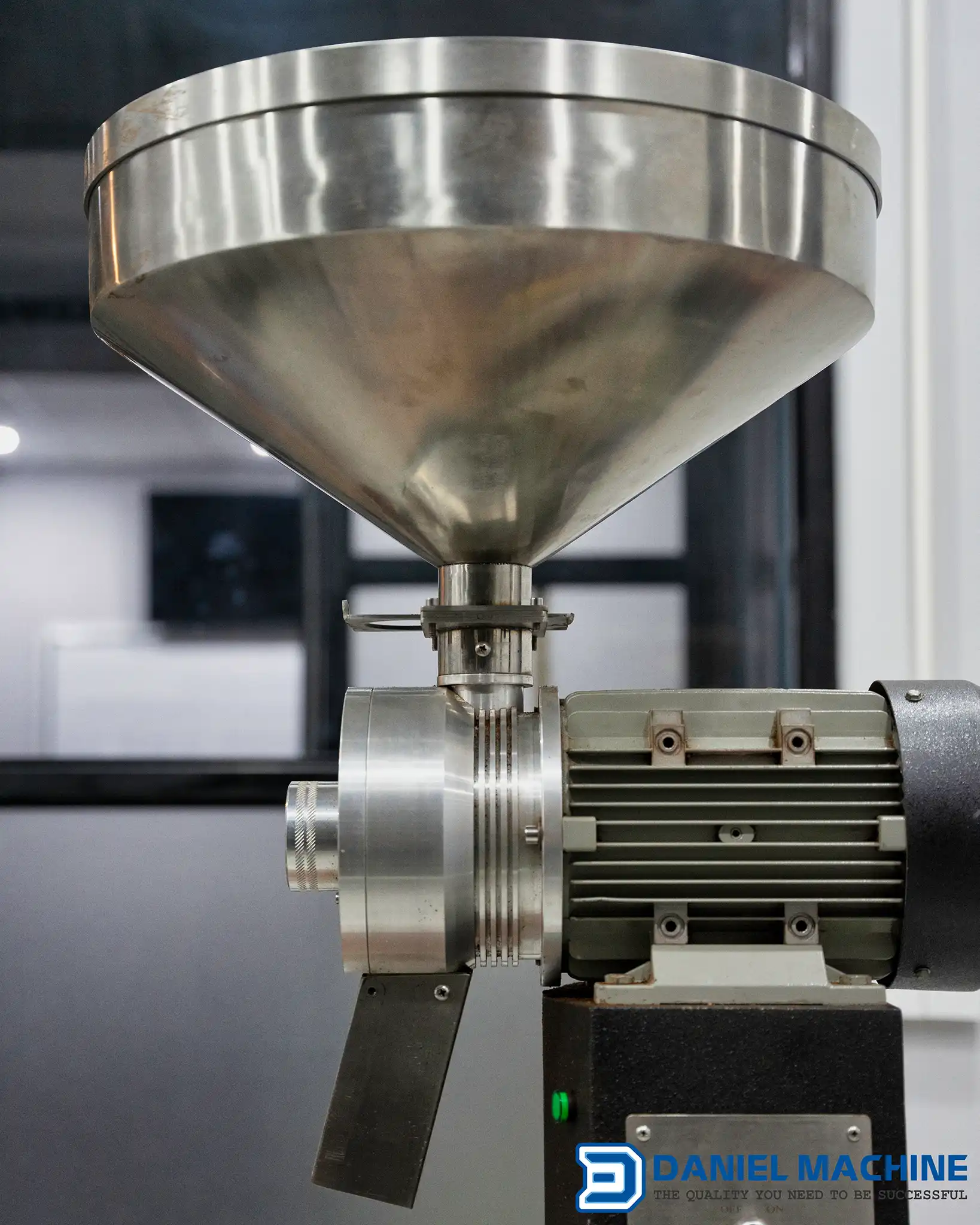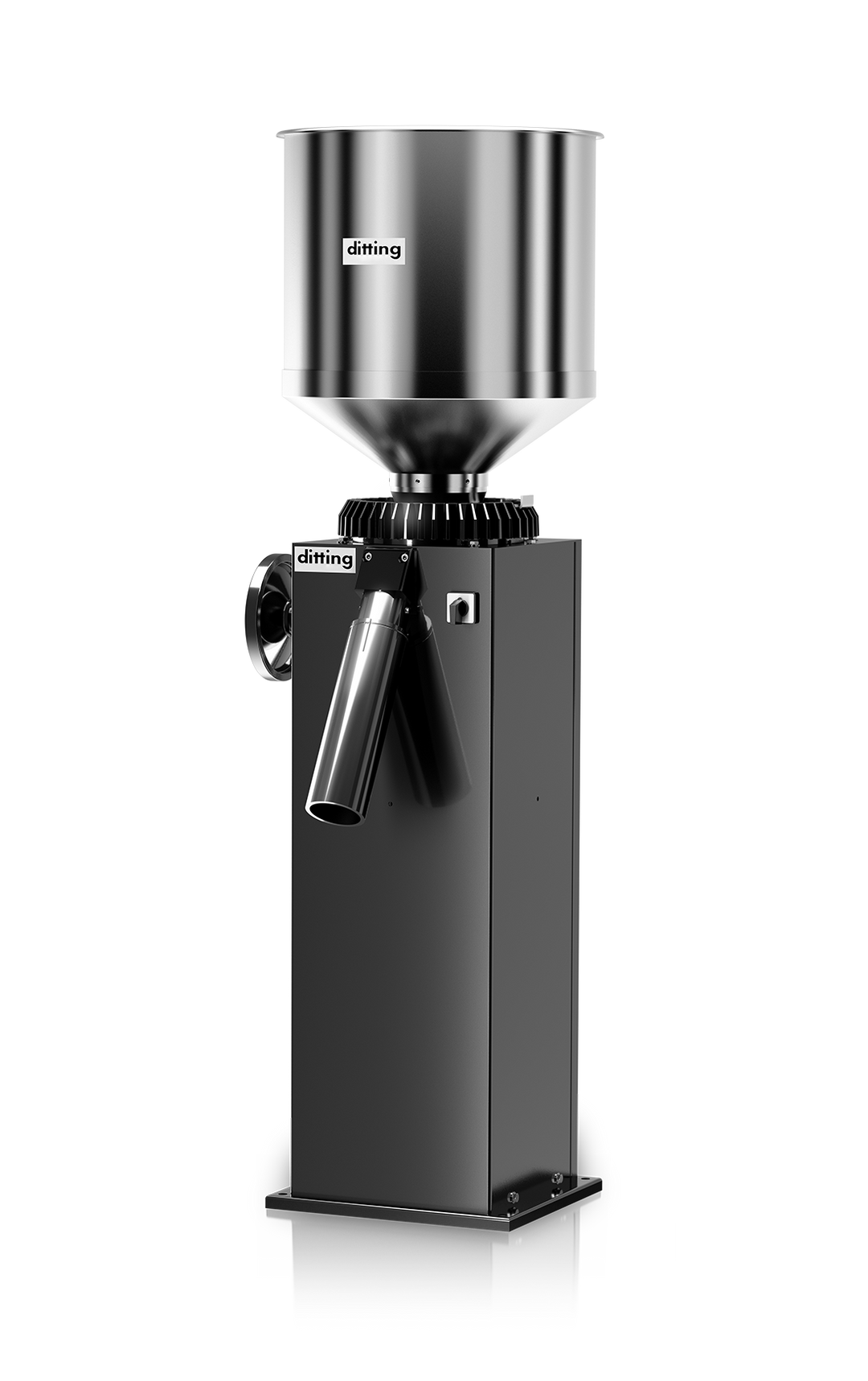Industrial Coffee Grinder: Key Features to Consider When Shopping
Industrial Coffee Grinder: Key Features to Consider When Shopping
Blog Article
Exactly How to Select the Perfect Industrial Coffee Grinder for Your Business
Selecting the ideal industrial coffee grinder for your service is a multifaceted choice that calls for mindful consideration of several crucial elements. It is necessary to evaluate your details grinding needs, consisting of the volume of coffee processed and the preferred grind uniformity, as these elements directly affect taste and consumer satisfaction. In addition, comprehending the numerous kinds of mills available can significantly influence your functional effectiveness. As you navigate these considerations, one must additionally weigh the effects of budget plan and upkeep. What other factors could make or damage your option?
Assess Your Grinding Demands
When picking a commercial coffee grinder, one must first examine their grinding demands to guarantee optimal performance and uniformity. This first examination includes understanding the quantity of coffee to be processed daily, along with the desired grind size for various developing methods. A high-capacity mill might be required for businesses serving large amounts of coffee, while smaller procedures could find an extra portable version adequate.
Additionally, it is vital to think about the sorts of coffee beans being utilized, as various beans may require details grinding methods to achieve the finest taste profile. Oily beans might require a mill designed to handle such attributes without clumping or overheating.
Specialized coffee organizations commonly require specific work dimensions to improve removal and taste, making it important to choose a mill that can deliver uniform outcomes. Examining the readily available space and electrical needs will assist in selecting a grinder that fits seamlessly right into your operational operations.
Understand Mill Kind
Comprehending the numerous sorts of commercial coffee mills is critical for making an informed selection that meets details functional requirements. There are largely two groups of mills: blade mills and burr grinders.
Blade grinders use rotating blades to slice the coffee beans, leading to an irregular work size - Industrial Coffee Grinder. While they might be much more cost effective, they are often not suitable for commercial applications where accuracy is necessary
On the various other hand, burr grinders supply a much more consistent work by crushing the beans between 2 surface areas. They can be further classified into flat burr and conical burr grinders. Apartment burr mills offer a regular grind dimension and are commonly favored for coffee preparation, while conelike burr mills are flexible and can manage a series of mixture approaches, from espresso to French press.
When picking a grinder, take into consideration the specific requirements of your organization, consisting of preferred grind consistency, manufacturing volume, and the sorts of coffee beverages you plan to supply - Industrial Coffee Grinder. Each mill kind has its advantages and constraints, so recognizing these subtleties makes it possible for educated decision-making that aligns with functional goals
Evaluate Grind Size Consistency
Attaining work dimension uniformity is crucial for producing top notch coffee, as variations in bit dimension can dramatically impact removal and taste. When picking an industrial coffee grinder, it is essential to examine how well the machine keeps uniformity in work dimension across different batches. Irregular grind sizes can bring about unequal extraction, leading to a mug that might taste overly bitter or weak.
To analyze grind dimension uniformity, consider mills with attributes such as adjustable grind settings and top quality burrs. Burr grinders, particularly, excel in producing consistent fragment dimensions compared to blade mills. The material and form of the burrs play a crucial duty, with stainless-steel and ceramic options offering sturdiness and precision.

Think About Manufacturing Capacity
In the hectic world of coffee production, thinking about manufacturing ability is vital for businesses aiming to fulfill need without giving up top quality. The production ability of a commercial coffee mill directly influences a business's capability to satisfy orders successfully, manage supply, and react to rising and fall market trends.
When examining manufacturing capacity, it is necessary to evaluate the grinder's result rate, generally determined in pounds per hour. This measurement ought to straighten with your organization's projected sales quantity and growth targets. As an example, a café with a high turnover might call for a mill that can process numerous hundred pounds More about the author daily, while a smaller operation might be enough with a lower capability version.
Additionally, think about the type of coffee being refined. Various beans and blends might affect grinding speed and performance, requiring a grinder capable of dealing with diverse production requirements. It's also worth factoring in the grinder's ability to keep consistent quality under high result conditions, as any kind of changes can influence the final item.
Eventually, choosing a mill that matches your business's production capability will ensure you stay receptive and competitive to client assumptions.

Budget and Upkeep Aspects
When assessing the appropriate industrial coffee mill, budget plan and upkeep factors play a considerable role in the total decision-making process,. A first investment in a premium mill can produce long-lasting benefits, yet it's essential to develop a clear budget plan that aligns with your business's functional demands. Think about both the purchase cost and potential operational prices, such as power intake and substitute components.
Industrial coffee grinders need regular maintenance to guarantee ideal efficiency and longevity. Assess the manufacturer's recommendations for maintenance, including cleansing routines and parts replacement, as these will certainly influence lasting functional expenses.

Buying a mill that is durable yet easy to maintain can save money with time. While lower-priced options may be appealing, they might incur higher upkeep costs and lowered effectiveness. Inevitably, stabilizing initial expenses with long-term upkeep and operational performance will certainly lead you to the ideal option for your company's coffee grinding requirements.
Final Thought
Choosing the ideal industrial coffee grinder demands a thorough examination of grinding requirements, grinder kinds, grind size uniformity, manufacturing capability, and budgetary factors to consider. By prioritizing these variables, companies can guarantee the acquisition of a trustworthy, reliable grinder that fulfills certain functional demands. An appropriate mill not just boosts the quality of the coffee created however likewise adds to the overall success and success of the business. Long-term efficiency and maintenance ease should stay central to the decision-making procedure.
Specialty coffee services typically require accurate grind sizes to enhance removal and flavor, making i loved this it vital to select a mill that can provide uniform outcomes. Flat burr grinders use a consistent grind size and are normally preferred for coffee preparation, while cone-shaped burr mills are flexible and can take care of a variety of brew methods, from espresso to French press.
When choosing a commercial coffee grinder, it is critical to review how well visite site the device keeps uniformity in grind dimension throughout different batches. Burr mills, in certain, excel in creating uniform fragment dimensions contrasted to blade grinders.Picking the excellent commercial coffee mill necessitates an extensive assessment of grinding needs, grinder types, grind dimension uniformity, production capability, and budgetary factors to consider.
Report this page